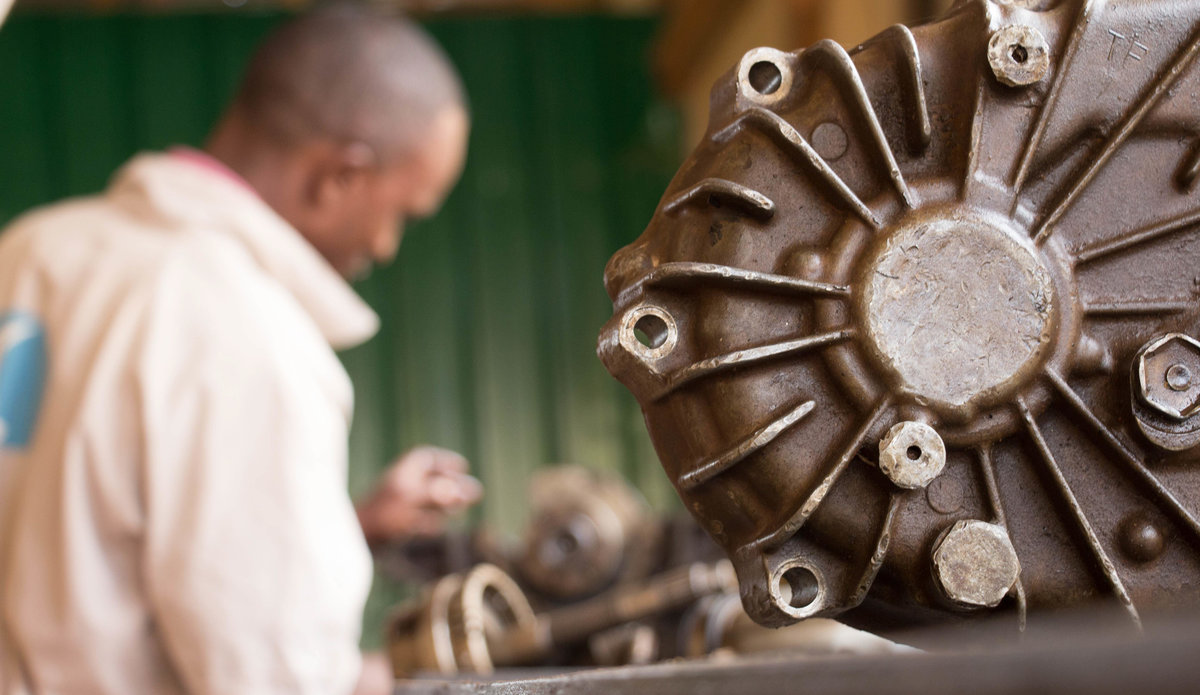Ex-Al-Shabaab combatants celebrate the start of new life following graduation from Baidoa Rehabilitation Center
Thirty-one-year-old Ahmed (not his real name) joined Al-Shabaab because he needed an income. It was a decision, he says, he will forever regret.
Ahmed was the head of a special group within Al-Shabaab that provided reinforcement to other militants when necessary. For almost 10 years, he fought what he now refers to as “senseless battles” that resulted in innocent people being killed.
A husband of two women and father of five, Ahmed joined Al-Shabaab in early 2006 after it broke away from the Islamic Courts Union, which at that time, was fighting the Transitional Federal Government of Somalia.
His motivation was to experience a better life, as he had been made to believe by Al-Shabaab recruiters. The reality was just the opposite. His life after joining Al-Shabaab became more unbearable by the day.
“Life in the bush became difficult. During raids, we could go for days without food and even water to sustain us,” remembers Ahmed.
The ex-combatant vividly remembers the incident that made him abandon Al-Shabaab, a group he was once ready to die for.
“I clearly remember a man my colleagues arrested for allegedly being a government spy and a non-believer. They first tortured him to force out a confession but after failing, they beheaded him,” he says.
“As they were beheading him, the old man was reciting the Shahada, until he died. They killed him under the pretext that he was a spy and a non-believer and yet he was reciting the Shahada. Though I could not protest, the incident really affected my conscious,” Ahmed recalls.
As a result of his restlessness, his colleagues started accusing him of being a spy for the American Central Intelligence Agency – and a government mole.
His colleagues became even more suspicious of him after they came under attack from military drones. Though Ahmed survived the raid, at least 40 of his colleagues died on the spot. After several days on the run, they came under another attack killing 12 of his men and injuring 17.
“My superiors accused me of revealing the location of those killed. I used to be on the phone all the time, and this reinforced their suspicions even more. As a result, they ordered that I be killed,” says Ahmed.
However, he miraculously escaped and walked more than 40 km, keeping off main roads to avoid detection, until he reached the Baidoa Rehabilitation Center.
After months of vocational training and learning new skills, Ahmed says he is ready to rejoin the world and lead a normal life.
“When I came here, my writing skills were minimal, now I can fully write and read Somali. I learnt English, tailoring, and how to assemble and repair vehicle engines,” he adds.
Ahmed urges Al-Shabaab militants still in the bush fighting “senseless battles” to put down their weapons and join peace loving Somalis in rebuilding the country.
Ahmed was among a group of 30 former Al-Shabaab combatants who graduated from the Baidoa Rehabilitation Center on 9 August. The ceremony was attended by representatives from the United Nations, the Interim South West Administration, AMISOM, traditional elders, civil society groups and various women’s groups. It also had the presence of a German delegation led by the Africa Director of the Federal Foreign Office, Ambassador Georg Schmidt and the German Ambassador to Somalia, Jutta Frasch. The initiative has been supported with funds from the German government.
 UN
UN





